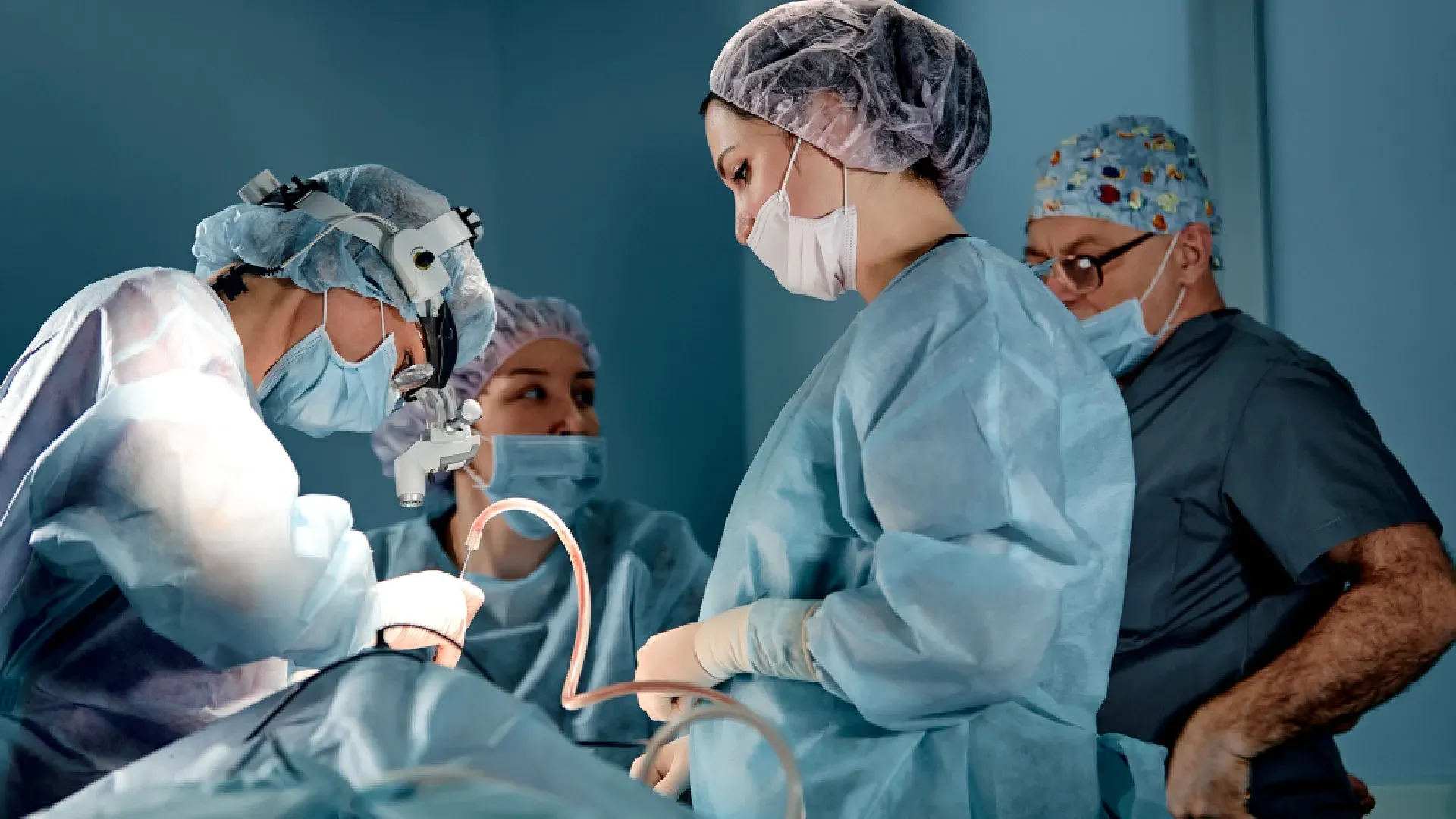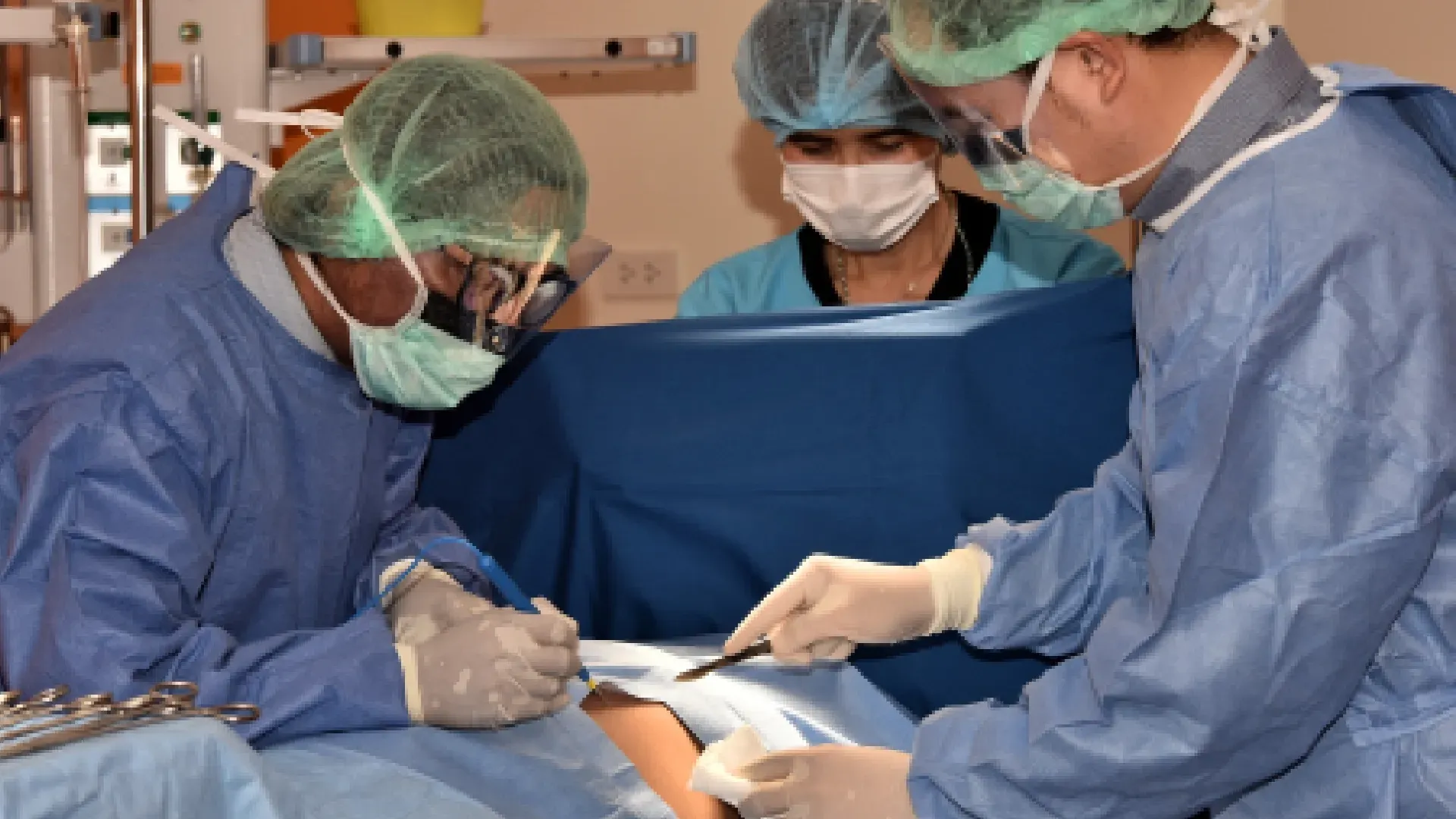
Australia’s healthcare system is under growing pressure, especially in surgical environments where the demand for theatre nurses continues to outpace supply. As elective surgeries surge post-pandemic and the ageing population requires more complex care, hospitals and surgical centres are grappling with critical staffing challenges. In particular, theatre nurse shortages are reaching a tipping point—leading to delayed procedures, increased clinician burnout, and compromised patient outcomes. So, why is the shortage so significant, and what role do staffing agencies like Dispatch Nursing Agency play in bridging the gap? Let’s explore the key issues and how proactive recruitment strategies are delivering timely solutions. A growing demand for surgical services Australia is experiencing a marked increase in demand for both elective and emergency surgical procedures. According to the Australian Institute of Health and Welfare, the volume of elective surgeries has climbed steadily, with over 2 million procedures performed annually. This demand is intensified by an ageing population and the backlog created by earlier pandemic-related postponements. To meet this volume safely and efficiently, hospitals need skilled, theatre-ready nurses available around the clock. However, filling these roles has become increasingly difficult due to a combination of workforce shortages and training limitations. The underlying causes of the shortage There are several reasons contributing to the shortage of theatre nurses in Australia: Retirement and attrition: A significant proportion of the current nursing workforce is approaching retirement. This is particularly true for specialist roles like perioperative and scrub nurses. Burnout: The high-pressure nature of surgical environments, combined with increased workloads and shift extensions, has led many experienced nurses to exit the field or reduce their hours. Training gaps: Theatre nursing requires specific technical skills and qualifications that aren’t always part of standard nursing education. The time and resources needed to upskill general nurses into perioperative roles can delay recruitment efforts. Regional challenges: Rural and regional hospitals often face even greater difficulty in attracting and retaining theatre staff, worsening disparities in healthcare access across Australia. How agencies are bridging the gap Specialised nursing agencies like Dispatch Nursing Agency play a pivotal role in helping hospitals maintain safe staffing levels in surgical departments. By offering access to a ready pool of qualified, experienced theatre nurses, agencies provide immediate relief to facilities facing last-minute absences, unexpected demand spikes, or ongoing vacancies. Here’s how agencies are addressing the problem effectively: 1. Access to pre-vetted, theatre-trained staff Dispatch Nursing Agency maintains a curated database of theatre nurses with verified qualifications and hands-on experience in surgical environments. This reduces onboarding times and ensures facilities get professionals who are confident, capable, and theatre-ready from day one. 2. Flexibility in staffing solutions Hospitals may need nurses for short-term contracts, weekend shifts, night coverage, or full-time positions. Agencies provide flexible staffing models that allow healthcare providers to scale their workforce based on changing needs—without compromising on care quality. 3. Rapid response to urgent staffing needs One of the major advantages of partnering with a nursing agency is rapid deployment. When last-minute absences or emergencies occur, agencies like Dispatch can fill shifts quickly, ensuring surgical theatres remain operational and patients are not left waiting. 4. Support for regional healthcare facilities Regional and rural hospitals often struggle the most with attracting qualified theatre nurses. Agencies extend their reach beyond metropolitan areas, helping close the rural-urban healthcare divide by sending experienced professionals to where they’re needed most. Looking ahead: sustainable solutions for a stronger system While agencies are vital in addressing immediate gaps, the long-term solution involves a combined effort from healthcare providers, training institutions, and government bodies. Increased investment in perioperative training, better retention strategies, and improved working conditions will be key to reversing the trend of theatre nurse shortages. Until then, the role of specialist nursing agencies like Dispatch Nursing Agency remains essential. By delivering skilled, theatre-ready nurses when and where they’re needed, they’re not just filling rosters—they’re helping protect patient outcomes and surgical care standards across Australia. Need qualified theatre nurses? At Dispatch Nursing Agency, we specialise in placing highly trained theatre nurses across Australia. Whether you’re facing last-minute shortages or need long-term staffing support, we’re here to help. Contact us today to find your ideal staffing solution.

In Australia’s bustling hospital systems, where surgical procedures are constant and staffing needs are ever-changing, temporary theatre nurses have become invaluable. Often stepping in at short notice, these professionals are not just gap-fillers—they play a crucial role in maintaining the quality and consistency of patient care, especially in high-pressure surgical environments. At Dispatch Nursing Agency, we specialise in supplying skilled, theatre-trained nurses who are ready to adapt to diverse clinical settings. With extensive experience supporting busy hospitals and day surgery centres, we’ve seen first-hand how temporary theatre nurses contribute to improved patient outcomes. 1. Filling critical staffing gaps without compromising care Hospitals frequently face sudden staff shortages due to illness, leave, or fluctuating surgery schedules. When these gaps occur in theatre teams, the risks to patient safety can be significant—delayed procedures, overworked staff, and reduced attention to detail all impact outcomes. Temporary theatre nurses step in to maintain optimal nurse-to-patient ratios and ensure that surgical procedures run smoothly. Their presence not only supports the existing staff but also helps prevent burnout and fatigue, which are known contributors to medical errors. 2. Delivering specialised surgical support Theatre nurses are highly trained professionals with niche expertise in perioperative care. From scrubbing in and preparing surgical instruments to monitoring patient vitals during procedures, their responsibilities require precision and confidence. Temporary theatre nurses provided by agencies like Dispatch are selected specifically for their experience in surgical settings, ensuring they’re theatre-ready from day one. Their familiarity with infection control protocols, aseptic techniques, and surgical workflows means they can integrate seamlessly into a new hospital system and uphold high standards of care without needing extensive onboarding. 3. Enhancing efficiency and reducing surgery backlogs Hospitals across Australia often struggle with surgery backlogs, especially after disruptions such as public holidays, flu season, or post-pandemic recovery periods. Without enough staff to manage operating rooms, delays become inevitable. Temporary theatre nurses allow hospitals to increase capacity, run additional theatre sessions, or extend hours without putting pressure on permanent staff. This flexibility not only helps reduce waiting times but also ensures that patients receive timely surgical care—an essential factor in recovery outcomes, particularly for elective and urgent procedures. 4. Supporting team dynamics with fresh perspectives Bringing in temporary staff can breathe new energy and perspectives into a team. Experienced temp theatre nurses are often well-versed in a variety of hospital systems, procedures, and technologies. This diversity of experience can lead to process improvements, better resource management, and the sharing of best practices across facilities. Furthermore, by working collaboratively with permanent staff, temp nurses contribute to a dynamic and responsive operating room culture—where adaptability, communication, and support are key drivers of patient-centred care. 5. Ensuring continuity of care during peak demand During peak seasons or periods of expansion, hospitals may need to scale up quickly to meet increased surgical demand. Rather than rushing through recruitment or risking underqualified hires, healthcare facilities can rely on temporary theatre nurses to maintain care continuity. Whether covering for maternity leave, long service leave, or sudden staff absences, temp nurses ensure that there is no compromise in the quality of care patients receive pre-, during, or post-operation. This continuity supports not just patient safety, but also hospital reputations and compliance with accreditation standards. 6. Focused, motivated, and performance-driven Temporary nurses are typically highly motivated professionals who thrive on delivering excellent care in changing environments. They are used to adapting quickly, learning hospital protocols fast, and staying focused in high-intensity situations. This mindset—driven by accountability and professionalism—can significantly enhance the efficiency and quality of surgical care. Patients benefit from being treated by focused nurses who are up to date with current practices and committed to making a positive impact during their placements. Conclusion Temporary theatre nurses are far more than a short-term solution—they are an essential part of Australia’s hospital systems. By improving workflow, ensuring continuity, reducing backlogs, and bringing specialised skills to the table, these professionals directly contribute to better patient outcomes across the board. At Dispatch Nursing Agency, we understand the value of sending not just any temp, but the right nurse—one who brings clinical excellence, professionalism, and readiness to every shift. If your hospital or surgical centre is looking to strengthen its operating theatre with dependable, experienced staff, talk to us today. We’re here to help you maintain quality care—no matter how busy your theatre becomes.

In the fast-paced, high-stakes world of surgical healthcare, every role in the operating theatre is critical—none more so than the theatre nurse. These professionals are not only expected to assist with complex procedures but must also work under immense pressure, often making split-second decisions. For hospitals and day surgery centres across Australia, the importance of hiring nurses with specialised perioperative training cannot be overstated. At Dispatch Nursing Agency, where our core focus is on supplying skilled theatre nurses, we understand how vital specialised training is in delivering safe, efficient, and quality surgical care. The unique responsibilities of theatre nurses Theatre nurses—also known as perioperative nurses—have responsibilities that go far beyond standard nursing duties. Their roles are broken down into distinct areas: Scrub nurses , who directly assist surgeons during procedures by handling instruments and ensuring a sterile field. Scout or circulating nurses , who manage the environment and ensure all necessary equipment and documentation are available. Anaesthetic nurses , who assist anaesthetists and monitor patients before and during surgery. Recovery nurses , who oversee patients post-operatively, managing their pain, consciousness levels, and vital signs. This range of responsibilities requires not just nursing qualifications, but also specific perioperative training and ongoing professional development to meet the dynamic and technical demands of surgical care. Why general nursing experience isn't enough While general nursing skills form the foundation of clinical practice, the theatre environment demands a higher level of specialisation. The complexity of surgical procedures, coupled with infection control requirements and critical thinking under pressure, means that inadequately trained nurses may struggle to cope or compromise patient safety. Mistakes in the theatre setting can have immediate and serious consequences—from surgical site infections to delays in procedures and adverse outcomes. That’s why Australian hospitals and surgical centres increasingly prefer theatre nurses who are trained and certified in perioperative nursing , often with credentials such as the Graduate Certificate in Perioperative Nursing or similar tertiary qualifications. These professionals are prepared to work collaboratively within surgical teams, operate advanced medical equipment, and uphold stringent compliance standards. Benefits of specialised training for patient care The ultimate benefit of specialised theatre nurse training is improved patient outcomes . When nurses are confident and well-prepared for surgical duties, procedures run more smoothly, risks are mitigated, and recovery times can be improved. Trained theatre nurses are more likely to recognise early signs of complications, follow best-practice infection control protocols, and provide effective support to both surgeons and patients alike. Moreover, these nurses are also trained to communicate clearly and effectively , a crucial skill in high-pressure scenarios. Their ability to anticipate surgical needs and respond calmly to unexpected developments ensures patients receive the highest standard of care throughout their surgical journey. How Dispatch Nursing Agency ensures quality At Dispatch Nursing Agency, our commitment to quality and reliability begins with our recruitment process. We don’t just place nurses—we deliver theatre-ready professionals who meet all regulatory and clinical expectations. Every candidate we provide undergoes rigorous screening and must demonstrate: Valid AHPRA registration Evidence of perioperative experience or formal training Up-to-date CPR, Manual Handling, and Infection Control certification Knowledge of hospital protocols and theatre procedures We also offer opportunities for continued professional development, supporting our nurses in staying updated with the latest surgical practices, technology, and compliance requirements. Meeting Australia’s growing surgical staffing needs With Australia’s ageing population and increasing demand for surgical procedures, the need for qualified theatre nurses is growing rapidly. Public and private hospitals alike face challenges in maintaining adequate staffing levels, especially in regional and rural areas. By providing highly trained, flexible theatre nurses on a temporary, contract, or permanent basis, Dispatch Nursing Agency helps fill these critical gaps. Our clients rely on us not just for quick staffing solutions, but for peace of mind —knowing that every nurse we provide is theatre-ready and capable of delivering high-quality care from the moment they step into the surgical suite. Final thoughts Surgical environments are no place for uncertainty. The margin for error is slim, and the expectations for care are high. This is why specialised training for theatre nurses is not a luxury—it’s a necessity. At Dispatch Nursing Agency, we’re proud to play a role in supporting hospitals and surgical centres across Australia with nurses who are skilled, experienced, and fully prepared to make a difference where it matters most. If you're looking for theatre nurses who are ready to step into action, get in touch with Dispatch Nursing Agency today. Let’s raise the standard of surgical staffing together.

The field of theatre nursing is rapidly evolving, driven by advancements in medical technology, changes in healthcare delivery, and an increasing demand for specialised surgical care. As hospitals and healthcare facilities strive to improve patient outcomes, theatre nurses are playing a more significant role than ever. This blog explores the emerging trends and innovations shaping the future of theatre nursing, highlighting how these changes will impact surgical teams and patient care. The growing demand for specialised theatre nurses Theatre nursing has always been a highly specialised field, requiring extensive training, precision, and the ability to work in high-pressure environments. However, as surgical procedures become more advanced, the need for skilled theatre nurses is increasing. 1. Rise in complex and minimally invasive surgeries With the introduction of robotic-assisted surgery, laparoscopic procedures, and other minimally invasive techniques, theatre nurses are required to have specialised training in these areas. These procedures offer quicker recovery times and reduced complications for patients, but they also require nurses to manage highly technical equipment, monitor patients with precision, and assist surgeons in new and innovative ways. 2. An ageing population and increased surgical demand Australia’s ageing population means a rising number of surgical interventions, particularly in orthopaedics, cardiology, and oncology. This increases the workload for theatre nurses, making it essential for healthcare providers to invest in recruitment, training, and workforce retention strategies to meet the demand. 3. Global nursing shortages and recruitment challenges Theatre nurses are in high demand globally, leading to workforce shortages in many regions. Healthcare facilities must focus on attracting, training, and retaining skilled theatre nurses to maintain high standards of surgical care. Agencies like Dispatch Nursing Agency are stepping in to provide reliable, highly trained theatre nurses to fill these critical roles. Innovations transforming theatre nursing Theatre nurses must adapt to rapid advancements in medical technology and surgical techniques. Here are some key innovations shaping the future of theatre nursing: 1. Robotic-assisted surgery and AI integration Robotic-assisted surgeries, such as those using the da Vinci Surgical System , are becoming more common, requiring theatre nurses to develop new technical skills. AI-powered surgical tools assist in precision cutting, data analysis, and real-time monitoring, helping nurses and surgeons achieve better patient outcomes. Theatre nurses play a vital role in: Preparing robotic equipment and ensuring its functionality before surgery. Assisting surgeons in operating these complex systems. Monitoring patients during robotic-assisted procedures to ensure safety. 2. Virtual reality (VR) and augmented reality (AR) in training Theatre nurses are now benefiting from VR and AR simulations that allow them to practise complex procedures in a risk-free environment. These technologies: Provide immersive training experiences for new theatre nurses. Enhance hand-eye coordination for complex surgical tasks. Allow nurses to gain experience in high-risk procedures before working in real-life situations. This type of advanced training is helping to reduce surgical errors and improve patient safety. 3. Enhanced patient monitoring and real-time analytics With the advancement of real-time data monitoring , theatre nurses can track patient vitals more accurately than ever before. Smart monitoring systems use AI algorithms to detect early signs of complications, allowing nurses to act quickly and reduce surgical risks. Additionally, wearable health technology is being used for preoperative and postoperative patient monitoring , ensuring better recovery outcomes and reducing hospital readmissions. The evolving role of theatre nurses As surgical procedures become more complex, theatre nurses are taking on expanded roles beyond traditional surgical assistance. 1. Multidisciplinary collaboration Theatre nurses are now working more closely with surgeons, anaesthetists, and post-surgical care teams to ensure seamless patient care. They are also involved in surgical planning by helping assess patient risk factors, preparing necessary equipment, and ensuring compliance with evolving healthcare regulations. 2. Stronger focus on patient-centred care The modern healthcare approach is shifting towards patient-centred care , where nurses are not only responsible for technical surgical assistance but also for patient advocacy and emotional support. Theatre nurses now play an active role in: Educating patients on pre- and post-surgical care. Addressing patient anxieties and concerns before surgery. Ensuring patients understand their recovery plans and medication schedules. By strengthening communication between medical teams and patients, theatre nurses help reduce post-surgical complications and enhance overall patient satisfaction. 3. Leadership and mentorship opportunities With the demand for skilled theatre nurses rising, experienced professionals are now being encouraged to train and mentor the next generation of nurses. This is particularly important as healthcare facilities face workforce shortages and need to fast-track the training of new surgical nursing staff. Addressing challenges in theatre nursing Despite the exciting innovations in theatre nursing, several challenges remain. Addressing these issues is essential to ensuring high-quality surgical care in the future. 1. Workforce shortages and burnout The demanding nature of theatre nursing can lead to stress and burnout. Healthcare providers must focus on: Offering flexible work arrangements to promote better work-life balance. Providing mental health support to help theatre nurses cope with high-pressure environments. Improving staffing levels to ensure adequate support in operating theatres. 2. Continuous training and upskilling To keep up with new surgical advancements, theatre nurses require ongoing professional development. Hospitals and agencies must invest in specialised training programs that equip nurses with the latest surgical skills, technology knowledge, and best practices. 3. Recruitment strategies for future theatre nurses To meet growing demands, healthcare facilities need effective recruitment strategies. Dispatch Nursing Agency is actively working to bridge the skills gap by connecting healthcare providers with highly trained theatre nurses, ensuring that surgical teams remain fully staffed and prepared for future challenges. Conclusion Theatre nursing is evolving rapidly, with innovations like robotic-assisted surgery, AI-driven patient monitoring, and immersive VR training transforming how surgical teams operate. These advancements are improving surgical precision, patient safety, and recovery outcomes, making theatre nurses more crucial than ever. However, challenges such as workforce shortages, burnout, and the need for continuous training must be addressed to sustain high-quality surgical care. Agencies like Dispatch Nursing Agency are playing a pivotal role in supplying skilled theatre nurses to meet the demands of modern healthcare. As the future of surgical care unfolds, theatre nurses will remain at the forefront of innovation, ensuring that every procedure is conducted with precision, efficiency, and the highest standards of patient care. Looking for experienced theatre nurses to enhance your surgical team? Contact Dispatch Nursing Agency today and discover how our specialised workforce can support your healthcare facility.

In modern surgical care, the role of theatre nurses is more critical than ever. These specialised nurses are integral to the smooth operation of surgical procedures, ensuring patient safety, supporting surgical teams, and managing the complexities of the operating theatre. As healthcare evolves, the demand for highly trained theatre nurses is increasing, and their impact on patient outcomes is undeniable. In this blog, we explore how specialised theatre nurses contribute to better patient outcomes and why their expertise is crucial in today’s healthcare environment. The unique role of theatre nurses in surgical care Theatre nurses play a vital role in the surgical process, from preoperative preparation to intraoperative assistance and postoperative recovery. Their work directly influences patient safety, efficiency in the operating room, and the overall success of surgical procedures. 1. Preoperative care and patient preparation Before a surgery begins, theatre nurses assess patients, confirm their medical histories, and ensure all necessary preparations are in place. This stage is crucial in identifying any potential risks, such as allergies or underlying conditions that could affect anaesthesia or the surgical process. Theatre nurses also educate patients about what to expect before, during, and after surgery, which helps reduce anxiety and improve post-surgical compliance. Proper preparation ensures that surgeries proceed without unnecessary delays or complications. 2. Intraoperative support and surgical precision During the operation, theatre nurses work in two primary roles: Scrub nurses assist surgeons directly by preparing instruments, maintaining a sterile field, and anticipating the surgeon’s needs throughout the procedure. Their ability to anticipate and respond quickly ensures that surgeries run smoothly and efficiently. Circulating nurses oversee the broader surgical environment, ensuring sterility, monitoring patient vitals, and coordinating between surgical teams and external departments like pathology or radiology. Theatre nurses play a crucial role in preventing surgical errors by ensuring accurate instrument counts, maintaining sterile conditions, and assisting with intraoperative monitoring. Their expertise reduces the risk of infections, complications, and extended recovery times. 3. Postoperative care and patient recovery The impact of theatre nurses extends beyond the operating room. After surgery, they assist in monitoring patients, managing pain, and preventing complications such as blood clots or infections. Their vigilance in the immediate postoperative period ensures a smoother recovery process and reduces the likelihood of readmission. Additionally, theatre nurses educate patients and their families on post-surgical care, medication management, and warning signs of complications. Their guidance empowers patients to take an active role in their recovery, leading to better long-term health outcomes. The impact of specialised theatre nurses on patient safety Patient safety is at the core of every healthcare practice, and theatre nurses are instrumental in implementing protocols that reduce risks and enhance patient care. 1. Infection control and prevention One of the biggest risks in surgical procedures is infection. Theatre nurses are responsible for maintaining a sterile environment, ensuring proper hand hygiene, and following strict infection control protocols. Their vigilance significantly reduces the likelihood of post-surgical infections, which can lead to extended hospital stays and additional complications. 2. Error reduction and surgical accuracy Surgical errors can have severe consequences, but theatre nurses act as a safeguard against such risks. By conducting thorough preoperative checklists, verifying patient details, and ensuring all equipment is accounted for, they help prevent mistakes such as wrong-site surgery or retained surgical instruments. 3. Enhanced patient monitoring Theatre nurses are highly skilled in monitoring patient vitals during surgery, including heart rate, oxygen levels, and blood pressure. Their ability to detect early signs of complications allows for quick intervention, improving patient survival rates and reducing the need for prolonged hospitalisation. The evolving role of theatre nurses in modern healthcare With advancements in surgical techniques and medical technology, theatre nurses are taking on even more specialised responsibilities to enhance patient care. 1. Integration of advanced medical technology From robotic-assisted surgeries to AI-powered diagnostics, modern operating theatres are becoming increasingly technology-driven. Theatre nurses must continuously update their skills to work with cutting-edge medical equipment, ensuring they can support surgeons effectively and optimise patient outcomes. 2. Multidisciplinary collaboration Theatre nurses work closely with anaesthetists, surgeons, and post-operative care teams to create a seamless patient experience. Their ability to coordinate between departments ensures continuity of care, reducing recovery times and minimising complications. 3. Emphasis on patient-centred care Healthcare is shifting towards a more patient-centred approach, and theatre nurses play a key role in this transformation. By focusing on patient education, personalised care plans, and emotional support, they contribute to better patient experiences and improved long-term health. Addressing the shortage of specialised theatre nurses Despite their critical role, there is a growing shortage of specialised theatre nurses. Hospitals and healthcare facilities must prioritise recruitment and retention strategies to ensure a steady supply of skilled professionals. Agencies like Dispatch Nursing Agency are playing a crucial role in bridging this gap by connecting healthcare providers with experienced theatre nurses. Key strategies to attract and retain theatre nurses include: Competitive salaries and benefits to recognise the expertise required for theatre nursing. Professional development opportunities to encourage ongoing learning and career progression. Flexible work arrangements to improve work-life balance and prevent burnout. A supportive work environment that fosters collaboration and values the contributions of theatre nurses. Conclusion Specialised theatre nurses are at the heart of successful surgical procedures, ensuring patient safety, supporting medical teams, and improving post-surgical outcomes. Their expertise in infection control, surgical precision, and patient care makes them indispensable in modern healthcare. As the demand for surgical procedures continues to rise, investing in skilled theatre nurses is crucial for maintaining high standards of patient care. Dispatch Nursing Agency is committed to providing healthcare facilities with top-tier theatre nurses who can make a real difference in surgical outcomes. If you are looking to hire experienced theatre nurses or seeking opportunities in surgical nursing, contact Dispatch Nursing Agency today to find out how we can support your staffing needs.

The demand for skilled theatre nurses is rising as the healthcare sector evolves to meet the growing need for surgical procedures. Advances in medical technology, an ageing population, and increasing patient expectations mean that operating theatres require highly trained nurses to ensure efficiency, safety, and quality care. Theatre nurses play a critical role in modern surgical settings, supporting surgeons, managing surgical instruments, and ensuring patients receive the best possible care before, during, and after surgery. In this blog, we explore how theatre nurses are shaping the future of surgical care and why their role is becoming more vital than ever. The growing demand for theatre nurses The healthcare industry is experiencing a significant shortage of skilled professionals, and theatre nursing is no exception. Several factors are driving this increased demand: An ageing population: As people live longer, the need for surgical procedures such as joint replacements, cardiovascular surgeries, and cancer treatments has increased. Theatre nurses are essential in managing the growing number of surgical interventions required to maintain quality of life for ageing patients. Medical advancements: Technology in surgery has advanced rapidly, with minimally invasive procedures, robotic-assisted surgeries, and enhanced recovery protocols becoming the norm. Theatre nurses must be highly skilled in handling new surgical technologies and ensuring patient safety during complex procedures. A rise in elective surgeries: Many patients postponed elective surgeries during the pandemic, leading to a backlog of procedures. Hospitals and surgical centres are now working to clear these delays, increasing the demand for theatre nurses to assist in operating rooms. A shortage of specialised nurses: The number of trained theatre nurses has not kept up with demand, creating staffing gaps in hospitals and healthcare facilities. This shortage means that recruitment agencies and healthcare providers must work harder to attract, train, and retain skilled theatre nurses. The evolving role of theatre nurses in surgical care Theatre nurses are essential members of surgical teams, contributing to patient care before, during, and after surgery. Their role is evolving to meet the increasing complexities of modern healthcare. 1. Preoperative care and patient preparation Before surgery, theatre nurses assess patients, ensure they are fully informed about their procedures, and prepare them for the operating room. This includes obtaining consent, verifying medical histories, and ensuring that all necessary equipment is available. 2. Assisting during surgery During surgery, theatre nurses take on one of two primary roles: scrub nurses or circulating nurses. Scrub nurses work directly with surgeons, passing instruments, maintaining a sterile field, and anticipating the needs of the surgical team. Their precision and efficiency are crucial for smooth operations. Circulating nurses manage the overall environment of the operating room, ensuring patient safety, monitoring sterility, and coordinating between different medical teams. 3. Postoperative care and patient recovery After surgery, theatre nurses continue to play a vital role in monitoring patients, managing pain, and preventing complications. They educate patients and their families on post-surgical care and recovery, ensuring a smooth transition from surgery to rehabilitation. How theatre nurses are shaping the future of surgical care Theatre nurses are not just supporting surgical teams; they are actively shaping the future of surgical care by driving innovations and improving patient outcomes. 1. Adopting new surgical technologies With robotic-assisted surgeries and AI-powered diagnostics becoming more common, theatre nurses must continuously upskill to stay ahead. Their ability to work with advanced medical equipment and integrate new surgical techniques makes them indispensable in modern operating rooms. 2. Enhancing patient safety and efficiency Theatre nurses are at the forefront of improving surgical safety protocols. By implementing strict infection control measures, ensuring accurate instrument counts, and managing preoperative checklists, they help reduce complications and improve patient recovery times. 3. Supporting multidisciplinary collaboration Surgical care is increasingly team-based, involving anaesthetists, surgeons, physiotherapists, and post-operative care specialists. Theatre nurses act as a bridge between these professionals, ensuring seamless communication and better patient outcomes. The importance of recruitment and retention in theatre nursing As the demand for theatre nurses continues to grow, healthcare facilities must focus on effective recruitment and retention strategies. Agencies like Dispatch Nursing Agency play a crucial role in connecting skilled theatre nurses with hospitals and surgical centres that need their expertise. Flexible work opportunities: Providing locum and contract roles helps attract theatre nurses who seek better work-life balance and career flexibility. Competitive salaries and benefits: Offering attractive remuneration packages encourages experienced nurses to stay in the profession and reduces turnover rates. Ongoing training and development: Continuous professional development opportunities ensure that theatre nurses remain up to date with the latest surgical techniques and technologies. Supportive work environments: Creating a culture that values teamwork, mental health support, and professional growth leads to better job satisfaction among theatre nurses. Conclusion Theatre nurses are an integral part of surgical care, ensuring that operating rooms run efficiently, safely, and effectively. As surgical procedures become more advanced and the demand for healthcare services grows, the role of theatre nurses will only continue to expand. For hospitals and healthcare facilities, investing in skilled theatre nurses is essential to providing high-quality patient care. At Dispatch Nursing Agency , we are committed to supplying the best theatre nurses to meet the needs of modern surgical care. Whether you are a hospital looking for specialised theatre nurses or a nurse seeking new opportunities, we are here to help. If you're looking to hire experienced theatre nurses or explore career opportunities in surgical nursing, contact Dispatch Nursing Agency today!

Theatre nursing has always been a highly specialised field, requiring precision, teamwork, and the ability to perform under pressure. However, with rapid advancements in surgical technology, the role of theatre nurses is evolving significantly. From robotic-assisted surgeries to minimally invasive techniques and AI-driven patient monitoring, these innovations are transforming perioperative nursing and redefining the skills required to excel in the field. In this blog, we explore how surgical advancements are shaping the role of theatre nurses and what healthcare facilities can do to ensure their teams remain at the forefront of modern surgical care. 1. The Impact of Robotic-Assisted Surgery on Theatre Nursing Robotic-assisted surgery has revolutionised the operating room, allowing for greater precision, reduced recovery times, and minimally invasive procedures. However, this shift requires theatre nurses to develop new skills to support these advanced systems effectively. How Theatre Nurses Are Adapting: Technical Training: Theatre nurses must learn to operate and troubleshoot robotic surgical systems, such as the da Vinci Surgical System. Instrument Handling: Nurses assist surgeons in setting up robotic instruments, ensuring that all equipment is correctly calibrated and sterilised. Real-Time Monitoring: During robotic procedures, nurses play a crucial role in monitoring the patient and assisting with unexpected complications. Hospitals investing in robotic surgery must also invest in comprehensive training programs for their theatre nurses to keep up with these advancements. 2. Minimally Invasive Techniques and the Changing Role of Theatre Nurses Minimally invasive surgeries (MIS), such as laparoscopic and endoscopic procedures, have become increasingly common due to their benefits, including shorter hospital stays, reduced pain, and faster recovery times. How This Affects Theatre Nursing: New Equipment Handling: Theatre nurses must become proficient in using laparoscopic tools and camera systems. Enhanced Patient Monitoring: MIS procedures require nurses to closely monitor carbon dioxide levels, ventilation, and patient positioning to prevent complications. Sterile Field Management: With smaller incisions, ensuring a sterile field is even more critical to prevent infections. Theatre nurses must undergo specialised training to manage MIS procedures effectively and support surgeons in performing these complex operations. 3. AI and Data-Driven Surgical Procedures Artificial intelligence (AI) is making its way into the operating room, assisting in everything from real-time decision-making to predictive analytics for patient outcomes. AI-powered imaging and machine learning algorithms help surgeons navigate complex procedures with greater accuracy. The Role of Theatre Nurses in AI-Assisted Surgeries: Interpreting AI Data: Nurses must be able to analyse AI-generated insights and relay critical information to surgeons. AI-Enhanced Patient Monitoring: Advanced AI monitoring systems track vital signs, alerting theatre nurses to any potential complications. Workflow Optimisation: AI can help streamline theatre operations, and nurses must adapt to new protocols that integrate AI-driven efficiency tools. As AI continues to improve surgical precision, theatre nurses must be comfortable working alongside these new technologies while maintaining their hands-on patient care responsibilities. 4. Upskilling Theatre Nurses for the Future of Surgery To keep up with the evolving demands of perioperative nursing, hospitals and healthcare institutions must prioritise continuous learning and development for their theatre nurses. Key Training and Upskilling Initiatives: Advanced Certification Programs: Enrolling nurses in perioperative and robotic-assisted surgery courses. Simulation-Based Training: Using virtual reality (VR) and simulation labs to provide hands-on experience with new surgical techniques. Interdisciplinary Collaboration: Encouraging theatre nurses to work closely with surgeons, anaesthetists, and tech specialists to stay updated on the latest advancements. By investing in upskilling initiatives, healthcare facilities can ensure that their theatre nursing teams are well-equipped to handle the future of surgery. 5. The Importance of Retaining Experienced Theatre Nurses As surgical advancements continue to reshape perioperative nursing, retaining experienced theatre nurses becomes crucial. These professionals bring valuable knowledge, adaptability, and leadership to surgical teams. Retention Strategies for Theatre Nurses: Competitive Salaries and Benefits: Offering attractive pay packages and incentives for specialised training. Work-Life Balance Support: Implementing flexible scheduling to reduce burnout. Professional Development Opportunities: Providing pathways for career growth and leadership roles within perioperative nursing. Hospitals that focus on retaining their skilled theatre nurses will maintain high standards of patient care and operational efficiency in the face of evolving surgical practices. Conclusion The role of theatre nurses is changing rapidly as new surgical technologies reshape the operating room. From robotic-assisted procedures to AI-driven decision-making and minimally invasive techniques, theatre nurses must adapt to an increasingly tech-driven surgical environment. By investing in training, upskilling, and retention strategies, healthcare facilities can ensure that their theatre nursing teams are prepared for the future of surgery. At Dispatch Nursing Agency , we specialise in recruiting highly skilled theatre nurses who are equipped to handle the latest surgical advancements. If your healthcare facility needs top-tier perioperative professionals, contact us today to learn how we can support your staffing needs. O Reason

Theatre nurses are a vital part of any surgical team, ensuring that operating rooms run smoothly and patients receive the highest level of care. However, hospitals and healthcare facilities across Australia face ongoing challenges in recruiting and retaining skilled theatre nurses. With a growing demand for surgical procedures and an increasing shortage of qualified nursing professionals, it is more important than ever for healthcare providers to adopt effective recruitment and retention strategies. In this blog, we explore the best ways to attract and retain top theatre nursing talent while maintaining high standards of patient care and operational efficiency. Why is there a shortage of Theatre Nurses? Several factors contribute to the shortage of theatre nurses in Australia, including: Increasing Surgical Demand: As medical advancements lead to more complex procedures and an ageing population requires more surgeries, the demand for theatre nurses continues to grow. Workforce Retirement: Many experienced perioperative nurses are reaching retirement age, creating a gap that is not being filled quickly enough by new graduates. High-Stress Environment: The intense, high-pressure nature of the operating room can lead to burnout, resulting in higher turnover rates. Specialised Training Requirements: Theatre nursing requires extensive training and hands-on experience, making it harder to recruit nurses who are immediately ready to step into the role. To overcome these challenges, healthcare facilities must implement targeted strategies to attract and retain theatre nurses. How to attract top Theatre Nursing Talent 1. Offer Competitive Salaries and Benefits Theatre nurses are in high demand, and competitive compensation is a key factor in attracting top talent. Hospitals and healthcare facilities should ensure that their salary packages align with industry standards and offer additional incentives such as: Shift allowances and overtime pay Performance-based bonuses Paid professional development opportunities Subsidised training and certifications 2. Provide Career Growth and Training Opportunities Theatre nurses seek career progression and opportunities to expand their skills. Facilities should invest in: Ongoing education and certification programs in perioperative nursing Leadership training for nurses interested in management roles Specialised training in advanced surgical techniques, including robotic-assisted procedures A clear career progression pathway not only attracts skilled nurses but also encourages long-term commitment. 3. Improve Recruitment Processes Lengthy and complex hiring procedures can deter potential candidates. Healthcare facilities should streamline their recruitment processes by: Working with specialised nursing recruitment agencies like Dispatch Nursing Agency to access pre-screened candidates Offering fast-tracked onboarding for experienced theatre nurses Implementing digital recruitment solutions to reduce delays in hiring By making recruitment more efficient, healthcare providers can fill vacancies faster and reduce the risk of losing top candidates to competitors. 4. Create a Positive Work Environment Theatre nurses thrive in workplaces where they feel valued and supported. Key aspects of a strong workplace culture include: Effective teamwork: Encouraging collaboration and open communication between nurses, surgeons, and other medical staff Flexible scheduling: Providing better work-life balance to prevent burnout Mental health support: Offering counselling services, stress management programs, and peer support networks A positive and supportive environment can significantly improve job satisfaction and staff retention. How to Retain Skilled Theatre Nurses 1. Address Burnout and Workload Management Theatre nursing can be physically and emotionally demanding. Hospitals must take proactive steps to reduce burnout by: Ensuring safe nurse-to-patient ratios to prevent excessive workloads Implementing regular breaks and rotating schedules to minimise fatigue Offering wellness programs that focus on stress management and self-care Retention strategies must prioritise nurse well-being to prevent high turnover rates. 2. Recognise and Reward Excellence Acknowledging the hard work and dedication of theatre nurses fosters a culture of appreciation. Some effective recognition strategies include: Annual awards for outstanding performance in theatre nursing Public recognition in staff meetings or internal newsletters Incentive programs, such as extra leave days for long-term service A strong recognition program helps nurses feel valued, increasing job satisfaction and long-term commitment. 3. Foster Professional Development and Mentorship Experienced theatre nurses should be given opportunities to mentor junior staff. A structured mentorship program can: Provide guidance and support to new theatre nurses Create a sense of community and teamwork within surgical units Help experienced nurses take on leadership roles, giving them a reason to stay within the organisation Investing in mentorship and professional development builds loyalty and strengthens the theatre nursing workforce. 4. Offer Flexible Work Arrangements Hospitals that provide flexible work options, such as part-time schedules or job-sharing, can improve nurse retention. Flexibility allows nurses to manage their professional and personal responsibilities more effectively, reducing burnout and increasing job satisfaction. Conclusion Attracting and retaining skilled theatre nurses requires a combination of competitive compensation, career development, strong workplace culture, and support for nurse well-being. By prioritising these strategies, healthcare facilities can ensure they have a dedicated team of theatre nurses to deliver high-quality patient care. At Dispatch Nursing Agency , we specialise in connecting hospitals with top-tier theatre nurses, ensuring they find the right professionals to meet their staffing needs. Contact us today to learn how we can help your healthcare facility attract and retain the best surgical nursing talent.

Theatre nursing is one of the most demanding yet rewarding specialisations in healthcare. Operating room nurses play a crucial role in ensuring safe and efficient surgical procedures, working alongside surgeons, anaesthetists, and other healthcare professionals. Beyond technical expertise, theatre nurses must also possess strong interpersonal skills to thrive in high-pressure environments. In this blog, we explore the essential skills every theatre nurse needs to build a successful career in the operating room. 1. Strong Knowledge of Surgical Procedures and Equipment Theatre nurses must have in-depth knowledge of various surgical procedures, from routine operations to complex, high-risk surgeries. They are responsible for preparing the operating room, ensuring that all instruments and equipment are sterilised and ready for use. Understanding how to handle and pass surgical instruments efficiently is essential for smooth workflow during procedures. Additionally, theatre nurses must stay updated on the latest advancements in surgical technology, such as robotic-assisted surgery and minimally invasive techniques, to provide optimal support in the operating room. 2. Exceptional Attention to Detail In surgery, even the smallest mistake can have serious consequences. Theatre nurses must maintain a high level of focus and attention to detail throughout every procedure. Whether counting surgical instruments, monitoring sterility, or assisting the surgical team, precision is key to ensuring patient safety and preventing errors. 3. Quick Decision-Making and Problem-Solving Abilities The operating room is an unpredictable environment where situations can change rapidly. Theatre nurses must be able to think on their feet and respond quickly to any complications that arise. Whether it’s managing an equipment failure, assisting during an emergency, or anticipating the surgeon’s next move, the ability to make swift and accurate decisions is crucial. 4. Strong Communication and Teamwork Surgical procedures require seamless coordination between multiple healthcare professionals. Theatre nurses must be excellent communicators, ensuring clear and concise exchanges with surgeons, anaesthetists, and fellow nurses. Miscommunication in the operating room can lead to delays or errors, so theatre nurses must be confident in voicing concerns, confirming instructions, and maintaining smooth collaboration throughout procedures. Teamwork is equally important, as operating room teams rely on each other to create an efficient and safe surgical environment. Theatre nurses must work cohesively with their colleagues, providing support and assisting whenever needed. 5. Crisis Management and Ability to Stay Calm Under Pressure Surgical emergencies can occur at any moment, requiring theatre nurses to remain calm and composed under pressure. Whether handling a sudden change in a patient’s condition or assisting in life-saving interventions, theatre nurses must act quickly while maintaining a clear mind. Their ability to stay focused in high-stress situations ensures better outcomes for patients and helps the entire surgical team function effectively. 6. Patient Advocacy and Compassion Although theatre nurses spend most of their time in the operating room, their role in patient care extends beyond the surgery itself. They are responsible for ensuring patient safety, comfort, and dignity throughout the surgical process. Before surgery, theatre nurses reassure and educate patients about what to expect. After the procedure, they provide post-operative care, monitoring recovery and addressing any concerns. Compassion and empathy are vital in making patients feel at ease during what can often be a stressful experience. 7. Physical and Mental Stamina Theatre nurses work long shifts, often standing for hours during lengthy procedures. Physical endurance is essential to keep up with the demanding nature of the role. Additionally, mental resilience is just as important, as theatre nurses must stay focused and alert throughout their shifts. Maintaining a healthy work-life balance, practising self-care, and participating in stress management programs can help theatre nurses sustain their stamina and prevent burnout. 8. Commitment to Continuous Learning and Professional Development The field of surgery is constantly evolving, with new techniques, equipment, and best practices emerging regularly. Theatre nurses must be committed to lifelong learning, attending training programs, workshops, and certifications to enhance their skills. Pursuing additional qualifications, such as postgraduate perioperative nursing courses, can open doors to career advancement opportunities and leadership roles within surgical nursing. Conclusion A successful career as a theatre nurse requires a combination of technical expertise, problem-solving abilities, and strong interpersonal skills. From mastering surgical procedures to excelling in teamwork and crisis management, theatre nurses play a critical role in delivering safe and effective patient care. At Dispatch Nursing Agency , we specialise in connecting healthcare facilities with skilled theatre nurses who possess the right qualifications and attributes for the role. If you’re looking for experienced operating room nurses or seeking new opportunities in theatre nursing, contact us today for expert recruitment solutions.

